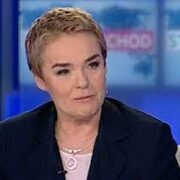

Under favorable circumstances, Putin could remain in power until 2036. However, these circumstances are unlikely to occur.
After some uncertainty, the Russians were relieved when Vladimir Putin agreed to run in the presidential elections for the fifth time. The requests of activists present at the state awards ceremony influenced this decision. Among them were Artem Zhoga from the Donetsk People’s Republic, a Muslim woman dressed in black, possibly from Chechnya, and a person wearing many medals. After a thorough consideration, and despite the difficult situation, Putin announced that he would sacrifice himself for the nation’s well-being and prosperity.
The circus in the Kremlin was preceded by another circus in the Federation Council, the upper house of the Russian Parliament. The Federation Council set the election date, and the Central Election Commission officially confirmed that the vote would occur from March 15 to 17. Although an election circus still lies ahead, it is now possible to predict the result with high probability. Putin is expected to receive over 80% support. Various levels of state and local government officials will try to ensure this outcome.
It may be challenging to prove a low turnout in an election. Russia’s sovereign democracy is capable of handling this issue. After March 17, Vladimir Vladimirovich will begin his fifth term in office. Sorry, I meant his first term after the reset in 2021. Under favorable circumstances, Putin could rule until 2036, but it’s unlikely to take place.
On December 14, the Direct Line call-in a communication session between Vladimir Putin and his villeins, Russian citizens, was held. This event was canceled last year, likely due to the situation in Ukraine. However, the Direct Line occurred this year, and the Russians could submit questions to their leader starting December 1. According to a survey by the independent Levada Center, 21 percent wanted to ask about ending the war and mobilizing to the front. The American think tank Institute for War Studies (ISW) considers this a failure of the Russian authorities, who have consistently attempted to suppress anti-war sentiments and referred to the invasion of Ukraine as a special operation.
According to the independent Russian website “7×7-Horizontal Russia,” the wives of citizens conscripted into the army were sending complaints and concerns in large numbers to Vladimir Putin. This action was initiated by a group representing families of mobilized individuals from the Samara region. They have announced regular sending of messages and are encouraging other relatives of mobilized people to do the same.
It has been reported that family members of Russian soldiers were also reaching out through the Telegram channel “Put Domoi” (Way Home), which currently has 30,500 users. Although this is not a huge number, it is expected to increase in the near future due to Putin’s recent decree to expand the number of Russian troops by an additional 170,000 soldiers, leading to a rise in concerns and questions from worried family members about mobilized men via this channel.
There is a growing anti-war sentiment in Russia that has been suppressed by the authorities. However, this is only one issue that needs to be addressed. The war in Ukraine has been ongoing for the past 21 months, and the Russian army has been given orders to achieve significant accomplishments by December 14, such as capturing the strategically important Avdiyivka. If they succeed, they could announce their achievements during the Direct Line with Putin.
However, even this will not mean the end of the fighting. Putin believes that time is on his side and the war will exhaust the West. However, even if Kyiv does not achieve victory and the conflict is frozen, this does not guarantee peace. The Ukrainians have consistently demonstrated their ability to effectively attack both Russian collaborators and strategic enemy targets in the occupied territories and beyond.
According to the Levada Center survey, Russian citizens are interested in more than just ending the war. They are also concerned about their pensions, social benefits, access to free medicines, education, and improvements in their standard of living. Unfortunately, the new presidential term may not address these concerns. While the Western sanctions did not cause as much damage to the Russian economy as expected, 40% of next year’s budget will be spent on armaments, which will come at the expense of social benefits, healthcare, and education.
That is all for now regarding the predictions about the upcoming future. Currently, according to the annual report of the Carnegie Foundation, 45 percent of the Russians support the ongoing war, and almost 80 percent support Vladimir Putin. Russian independent analysts are trying to explain this phenomenon. Most Russians believe that Putin is responsible for only one but the most essential thing – Russia’s global fame. Consequently, all the problems, failures, disasters, and corruption do not affect Vladimir Vladimirovich. Well, the Russians have always been fans of the political circus.
Maria Przełomiec for belsat.eu
Translated by PEV
The opinions and thoughts expressed in the text reflect only the author's views.

